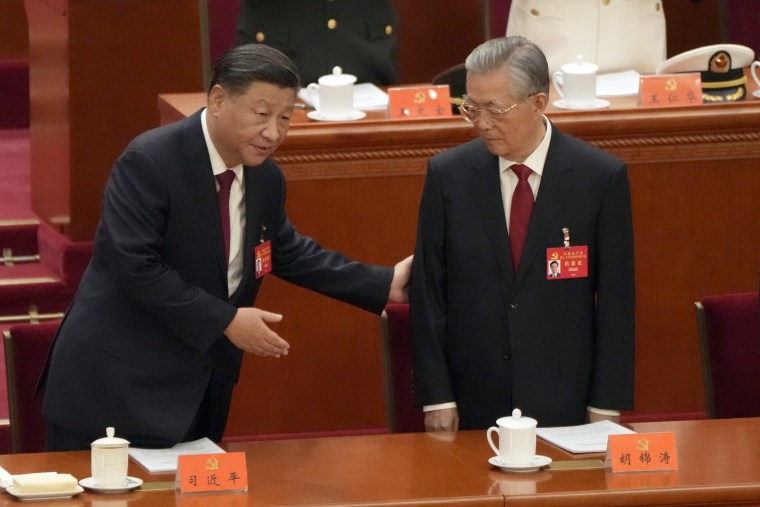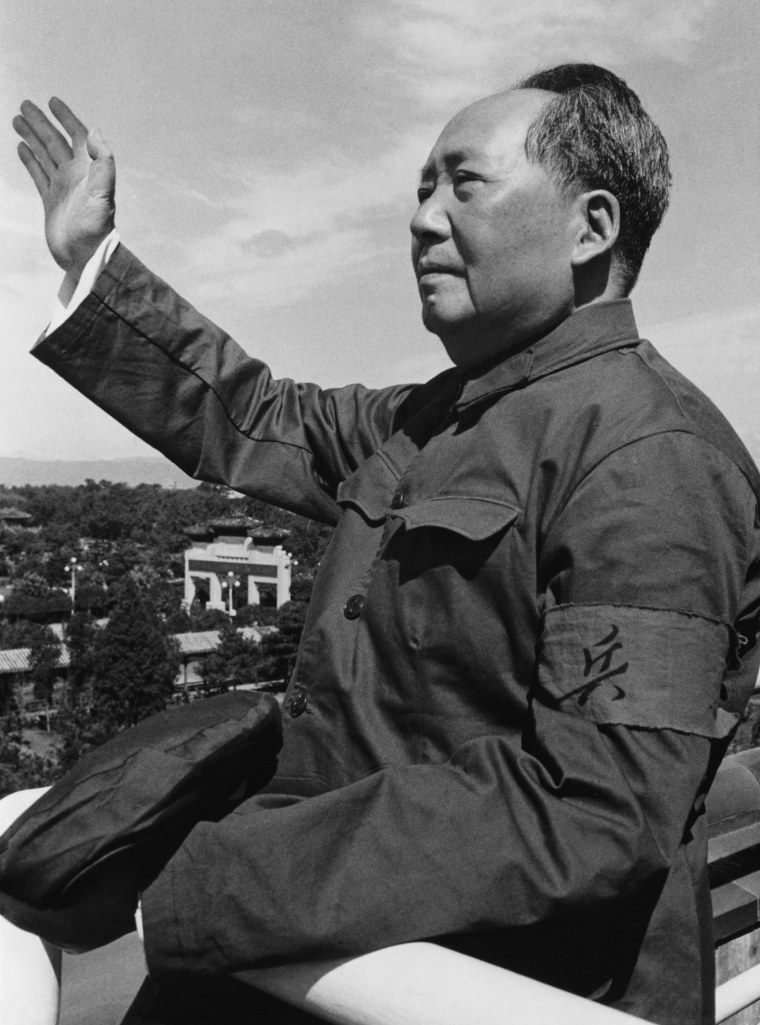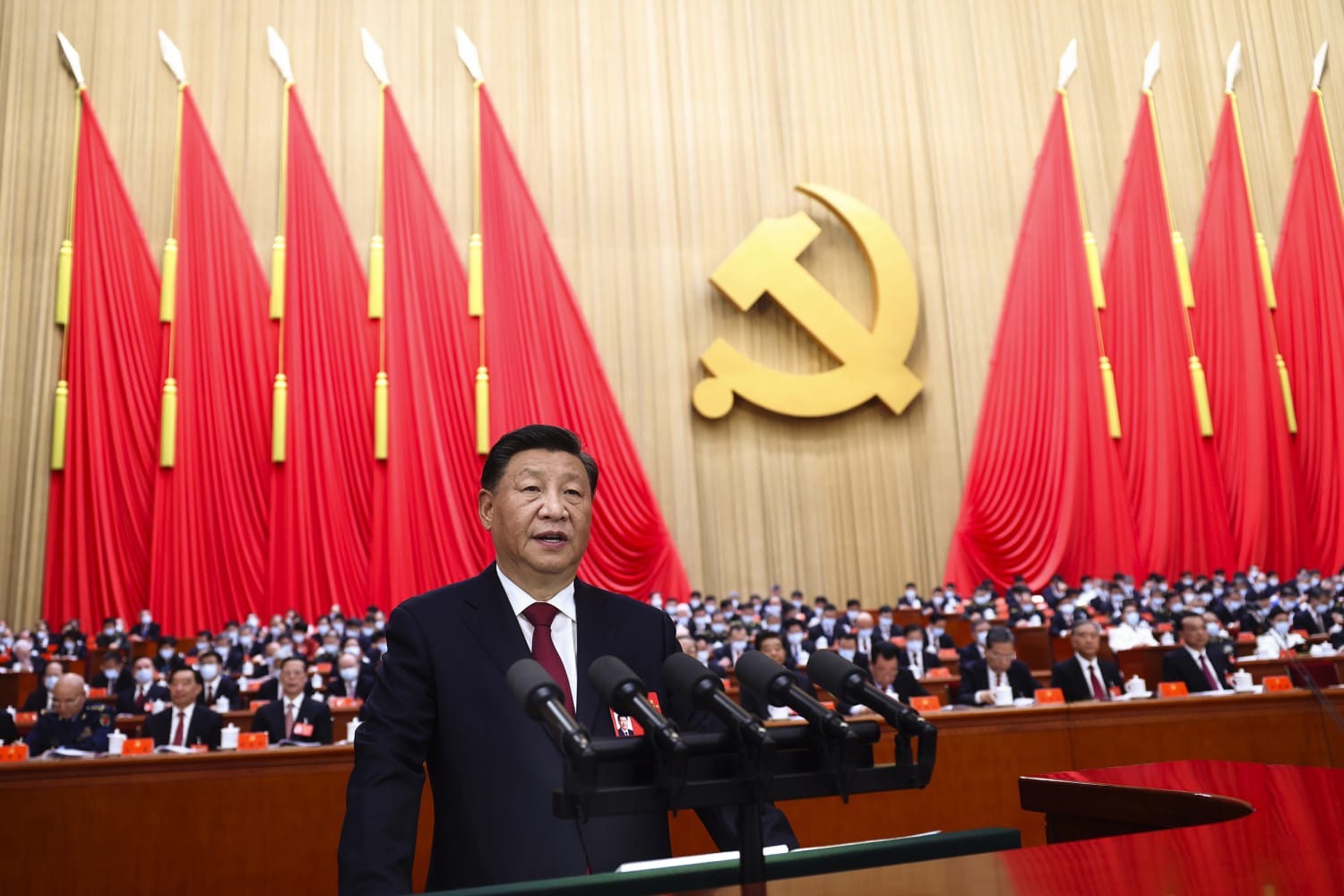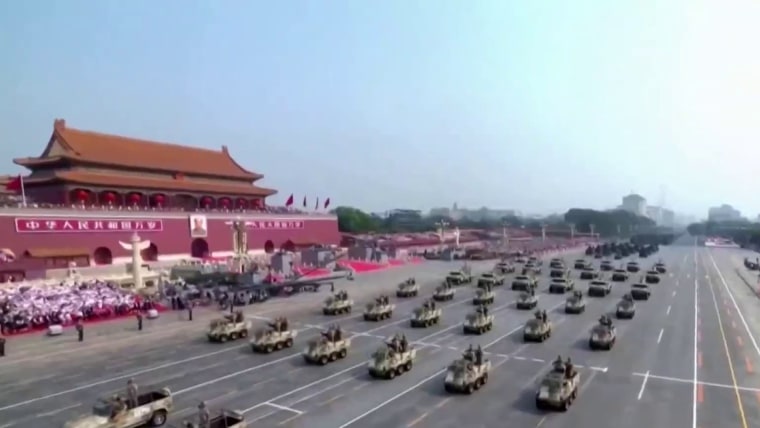HONG KONG — Chinese leader Xi Jinping’s first two terms in power were marked by intensifying competition and tensions with the United States. As he starts an unprecedented third term with tightened control over his party, relations between the two countries look set to get tenser.
“External attempts to suppress and contain China may escalate at any time,” he said at the start of a twice-a-decade congress of the ruling Communist Party of China last week.
Without naming Washington, Xi said that China should “be ready to withstand high winds, choppy waters and even dangerous storms.”
Days later, he emerged from the congress with a new leadership lineup that seems to exclude anyone who might question his hard-line policies.
“The message is that ‘I’m in control, I can do whatever I want.’”
Henry Gao, law professor at Singapore Management University said
The composition of the Politburo Standing Committee, China’s top decision-making body — made up of Xi and six of his close allies, all men, — “confirms what most China watchers have long suspected: Collective leadership in China, long on life support, is now officially dead,” said Craig Singleton, a senior fellow at the Foundation for Defense of Democracies, a think tank in Washington.
“Xi has transformed the once powerful Standing Committee into a committee of one: himself.”
Meanwhile, promotions for Foreign Minister Wang Yi and Qin Gang, the Chinese ambassador to the U.S., were implicit endorsements of their aggressive “wolf warrior” style of diplomacy, he added.
At the same time, Liu He and Yang Jiechi, two key contacts for U.S. trade and foreign policy officials, were dropped from the party’s new 205-member Central Committee, both having surpassed the customary retirement age of 68.
“Their dismissal, and the relative dearth of other Chinese interlocutors with robust U.S. experience, will almost certainly complicate the Biden administration’s already difficult task of establishing so-called guardrails in Washington’s strategic rivalry with Beijing,” Singleton said in an email.

These recent developments follow at least a decade of worsening relations with China.
While the U.S. and China are not in a cold war, they are getting closer to one, said Jia Qingguo, a former dean of the School of International Studies at Peking University in Beijing.
“China certainly hopes that the Sino-U.S. relationship will be relatively stable, and ideally it can be improved,” to the benefit of both countries, he said in an interview with The Carter Center in Atlanta published this week.
The problem, he said, is that many influential U.S. lawmakers and policymakers don’t see it that way. U.S. policy on China could remain tough in the short term, Jia said, particularly if Republicans make gains in congressional elections next month.
He cited U.S. lawmakers’ visits to Taiwan, the self-ruling democracy that Beijing claims as its territory, and newly expanded export controls on the sale of advanced semiconductor chips to China.
“The United States doing these things will cause China to react,” Jia said, “especially on the Taiwan issue.”
China saw House Speaker Nancy Pelosi’s contentious trip to the island in August as a further “hollowing out” of the “One China” principle that has underpinned U.S. policy on Taiwan for decades. Since then, Xi has made “reunification” with the island an even more central part of his agenda, although there is a consensus that China is unlikely to use force against Taiwan soon.
“There will be even less tolerance of countries that go against [China’s] view of Taiwan, so that could lead to more tensions,” said Ian Johnson, a senior fellow for China studies at the Council on Foreign Relations.
Taiwan’s foreign minister said Wednesday that China was likely to increase diplomatic pressure on the island, including trying to win over the 14 remaining countries that officially recognize Taipei rather than Beijing.
“Looking forward, our situation is becoming more difficult,” Joseph Wu said in a report to the Taiwanese Parliament.
Despite this, State Department spokesman Ned Price said that the outcome of the Communist Party congress does not change Washington’s approach to Beijing, calling the relationship “perhaps the most consequential bilateral relationship we have.”
While “responsibly managing” competition with China, he said at a news briefing this week, the U.S. welcomes cooperation “where our interests align, and that includes cooperation on climate change, on global health, counternarcotics, nonproliferation as well.”
Meanwhile, the White House said it is working to “keep lines of communication open” between President Joe Biden and Xi, who last spoke by phone in July and could potentially meet in person at a summit of Group of 20 leaders in Indonesia next month.
The United States does not seek conflict with China, Biden told a meeting of his top military advisers Wednesday.
That same day, Xi encouraged greater cooperation and communication between the two world powers in a letter that was read aloud at an event of the National Committee on U.S.-China Relations.
“China stands ready to work with the United States to find the right way to get along with each other in the new era,” he said.
Stable or brittle?
Five more years of Xi — who seems content to continue his current policies — means predictability, said Wang Yiwei, a professor at the School of International Studies at Renmin University in Beijing, contrasting the situation in China with recent leadership changes in Britain.
“Our trend, our goals, our path — all are certain,” he said.
But China under Xi has a “superficial stability,” Johnson said.
“The system he’s set up seems somewhat brittle, especially since it flies in the face of how most countries have gotten prosperous and wealthy and how to make friends in the world,” he said.
Xi has also made himself vulnerable by identifying himself so closely with key policies like “zero-Covid,” which he says is necessary to save lives but has caused growing public frustration and economic costs.
“He has less ability to jettison somebody, especially now that he’s surrounded by his team entirely,” Johnson said. “If he gets rid of somebody, that’s one of his allies he’s getting rid of.”

At 69, Xi has appointed no obvious successor, indicating he may plan to stay in power indefinitely. But having no successor or a weak successor could lead to his legacy being quickly overturned, Johnson said — much like what happened to communist China’s founding leader Mao Zedong, whose centrally planned economy was abandoned in favor of capitalist reforms within a few years of his death in 1976.
Xi’s apparent insistence on strengthening his position while diminishing the role of the Politburo runs counter to China’s decadeslong effort to avoid a return to one-man rule like that of Mao, who set the country on the path to becoming a world power, but whose excesses were later blamed for tens of millions of deaths.
That was underlined on the last day of the highly choreographed congress, when former President Hu Jintao, 79, who had been sitting next to Xi, was escorted off the stage in an unexpected moment of awkwardness. Though Chinese state media reported his removal was health-related, it prompted speculation of a deeper political signal from Xi, whose leadership reshuffle left members of Hu’s faction out in the cold.
“I think the fact that this happened in front of everyone is more significant than whatever the reason is, because it’s kind of a deliberate show,” said Henry Gao, a law professor at Singapore Management University. “The message is that ‘I’m in control, I can do whatever I want, even to a person like Hu.”
Source: | This article originally belongs to Nbcnews.com











